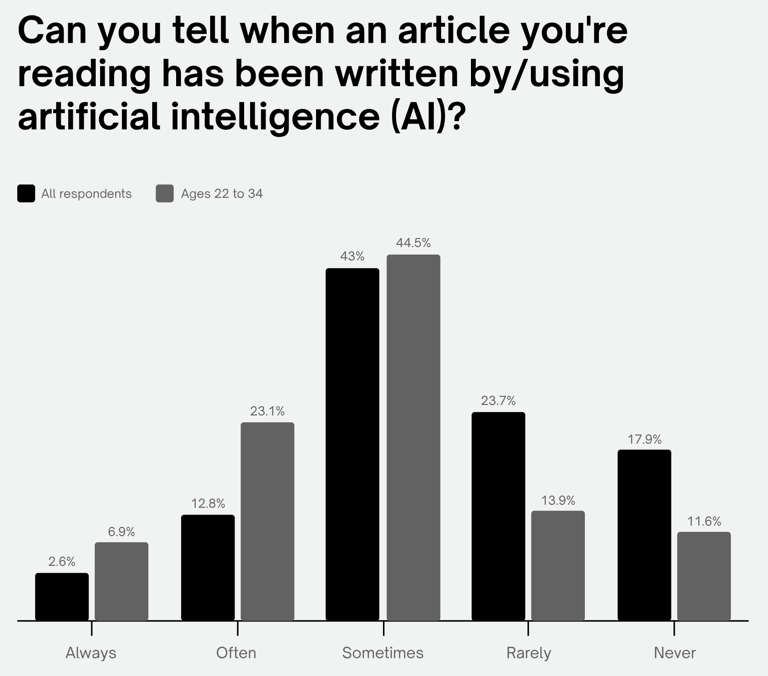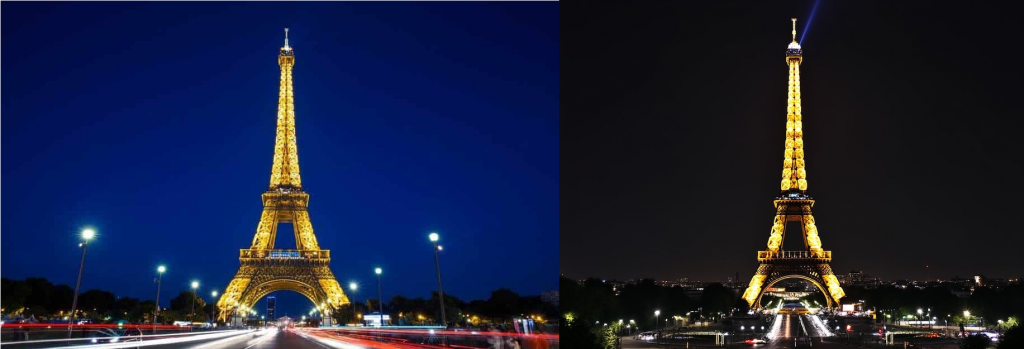Sup. Y’all know that we’re tied into WEB20 Ranker, right? They’re now offering free Agency Results Calls for agency owners or managers who are trying to drive results for their clients. This offer’s on table for anyone dealing with inconsistent GBP performance or spotty maps rankings. You can take advantage of it if you’re just looking to squeeze more ROI out of your efforts or have a problem that you can’t solve. Click here to book your free call.
As far as industry news goes, we caught wind of a study that confirms something lots of us instinctively believe: many people think poorly of brands that use AI-generated writing. We did find it surprising that this sentiment was not expressed by a majority of survey respondents–only 40.4% indicated a disdain for brands using ChatGPT–but our best guess is that the figures are weighted by the fact that kids don’t know how to read anymore. Still, the fact that four out of ten people dislike something should strongly deter brands from leaning into it.
An outfit called Hookline& (which is not a typo– the ampersand is part of the name) released the report we just referenced. All of the statistics in it are based on answers given by 1,000 Americans. Its ultimate conclusion is that brands rely on AI at their peril. It turns off potential customers and won’t persuade executives to pay for expensive products. You can view or download the report here.
 A different study that surveyed 4,000 people in the United States concluded that people are rarely fooled by AI-generated images. While this flies in the face of excited grandparents posting on Facebook nowadays, with few exceptions, people had little trouble distinguishing genuine imagery from the output of Midjourney or OpenAI’s newest image generation model. Nearly 90% of survey takers correctly identified the real (right) and fake (left) pictures of Scarlett Johansson that you can see above this paragraph.
A different study that surveyed 4,000 people in the United States concluded that people are rarely fooled by AI-generated images. While this flies in the face of excited grandparents posting on Facebook nowadays, with few exceptions, people had little trouble distinguishing genuine imagery from the output of Midjourney or OpenAI’s newest image generation model. Nearly 90% of survey takers correctly identified the real (right) and fake (left) pictures of Scarlett Johansson that you can see above this paragraph.
Less than 20% of survey participants correctly chose the Eiffel Tower image on the right as the one generated by AI. This was the only photo set that managed to fool more than half of them. The provided explanation is that there is robust training data for this landmark because it is one of the most photographed structures on the planet. We had trouble accepting this at face value because Scarlett Johansson isn’t exactly camera shy, but we do not have a better explanation.
The main takeaway from both of these reports is that people are rarely deceived by AI-generated content and frequently avoid engaging with it. Those of you who’ve watched this technology improve over the past few years know that it’s just a matter of time before most models begin adequately mimicking more appealing styles, but everyone should be cautious about using it in marketing for now because the output of large language models does not resonate with most audiences.
On that note, Google just released an upgrade to its generative AI product, Gemini. You can read more about this on Google’s blog.
We’re going to kick off today’s closing links with a Vox piece about the data mining operations of Disney, Roku, Netflix, Amazon, HBO, and basically every streaming company you’ve ever heard of. They’re actively inventing new ways to monetize your data. Next, from Hubspot, a nine-item listicle about creating effective lead-generation websites. Third, LinkedIn now offers livestreaming and recently posted 5 Strategies for Engaging Audiences with Live Event Streaming to its blog. Finally, from Buffer, an updated guide to optimal image sizes on different social media platforms.
That’s all for today. You really should take advantage of those free Agency Results Calls we mentioned at the top. Take care.


